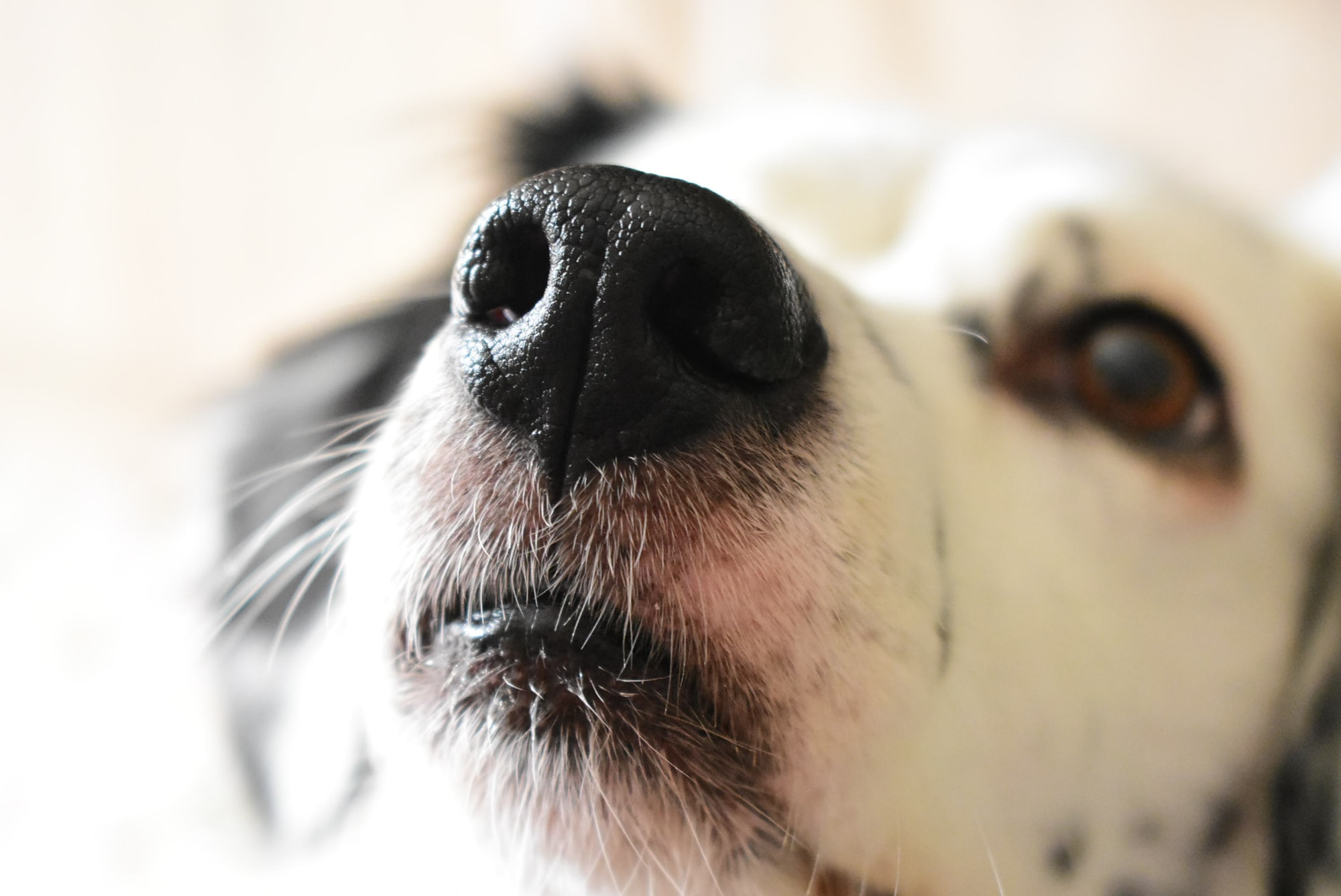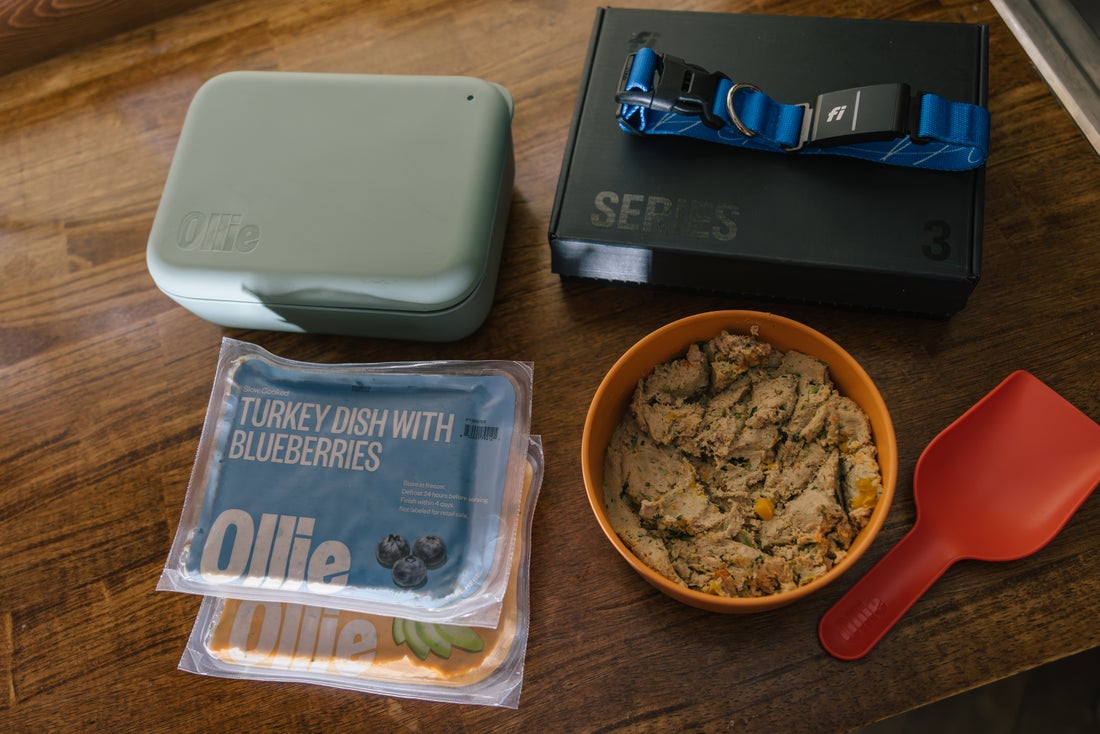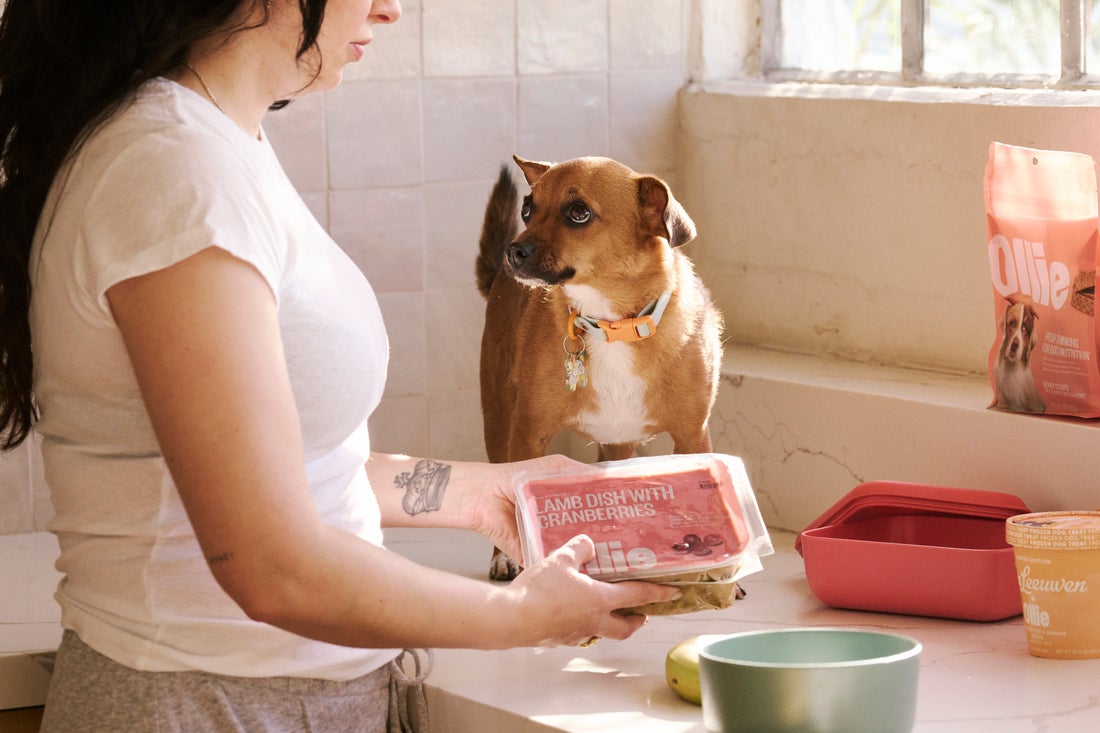Hey Ollie blog readers! We’re offering you an exclusive 60% OFF your starter box! Try now!
We catch our pups sniffing around park benches, other dogs’ butts, our unmentionables—pretty much any place they can stick their noses into. Clearly their sense of smell is hypersensitive (and they gravitate towards particularly stinky things.) But we had no idea just how intense it was until we read Alexandra Horowitz’s Being a Dog: Following the Dog into a World of Smell, where she shares exactly how dogs navigate the world through their schnoz. We’ve sniffed out a few of the most fascinating facts:
Who Nose: Facts About a Dog’s Sence of Smell
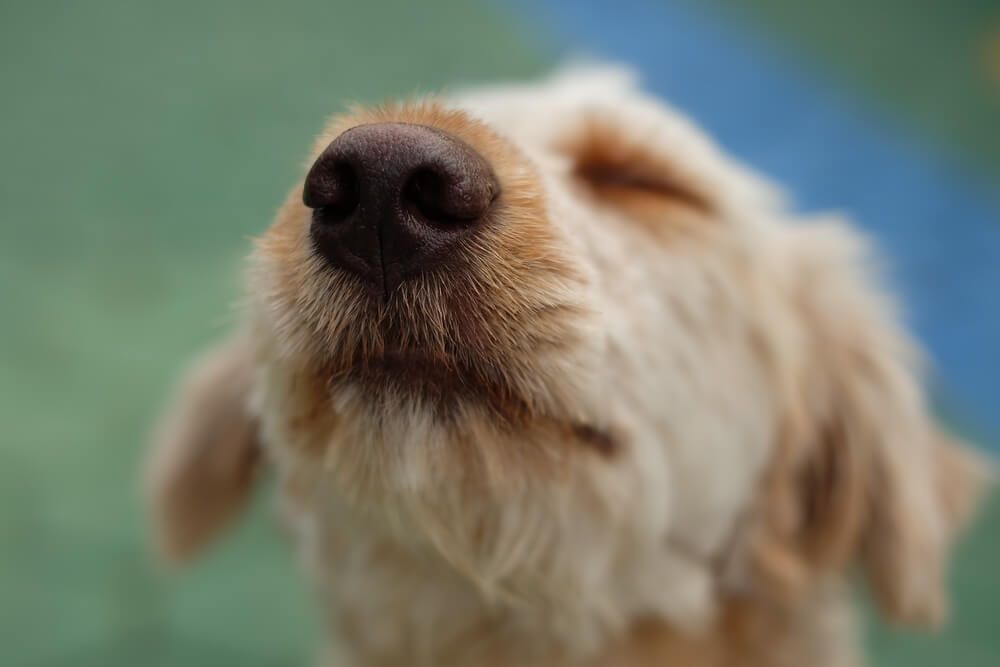
-
Dogs smell separately with each nostril, which allows them to detect the location a smell is coming from—it’s essentially peripheral smell (like our peripheral vision.)
-
Some dogs can detect their owners’ falling glucose levels and imminent seizures; others have sniffed out cancer volatiles in people’s skin, urine, and breath.
-
The smell of a human is so strong to dogs that they can follow it over time, even through water: The odor rises to the surface of the body of water allowing the dog to detect the scent.
-
Dogs can smell and detect a trillionth of a gram of an explosive.
-
Dogs use smell to tell the time of day, determining it by the concentration of the scent in the air. Depending its strength, they can figure out how long it has been there.
-
Dogs have 300 million olfactory receptors compared to the six million in humans.
-
The Vomeronasal organ (VNO) in dogs’ noses detects all hormones humans and animals naturally release, thus alerting them to various emotional states.
-
Dogs exhale through the side slits of their nostrils, so they keep a continuous flow of inhaled air in their snout for smelling.
-
Many of a dog’s identifying smells are in the anal glands, which explains why they’re constantly sniffing each other there! The glands also transmit how a dog is feeling (anxious, playful, etcetera.)
-
Licking allows dogs to absorb molecules for smelling. They are licking the scent molecules off of their nose or your body to learn more about their environment.
Scents at home: how to keep your dog safe from “bad” smells
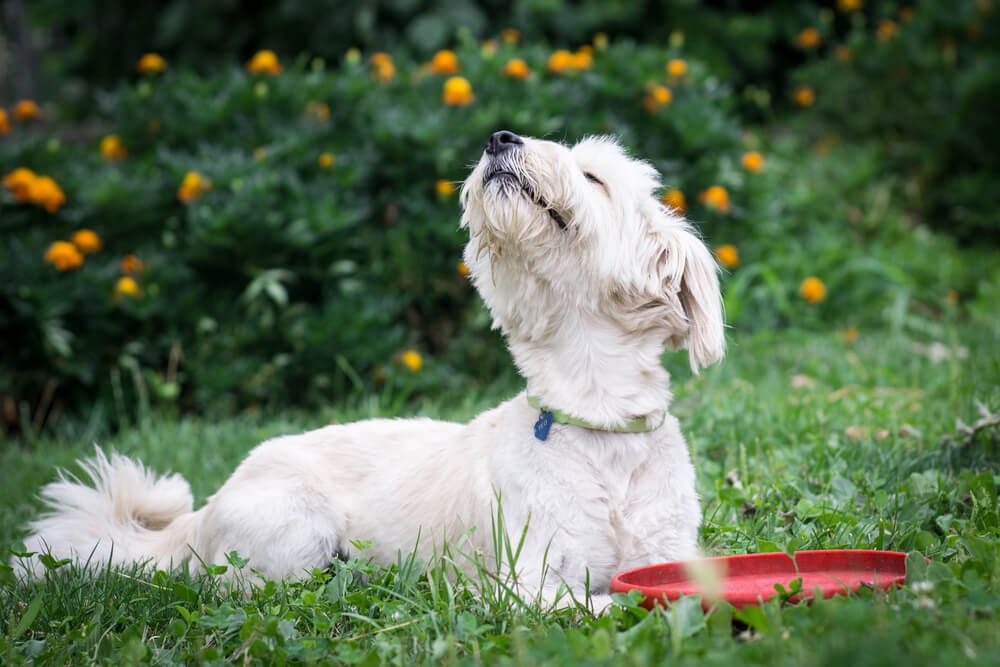
Now that we have an understanding of just how powerful a pup’s nose can be, its important to think about the smells they come in contact with every single day.
From the smell of your breakfast to scented candles and cleaning products there are a lot of scents in your home that your dog is taking in. Can these smells be irritating to your pup? In a word, yes but those breakfast scents might only be irritating if you’re not going to share.
When using essential oils to keep your home smelling fresh (and not like you have pets) use caution. Dogs strongly dislike the scent of citrus. You can use some oils like lavender safely but be sure they are diluted. Remember how strong your dog’s nose is? If it smells strongly to you, it smells thousands of times stronger to them. This can be stressful or even irritating to your dog.
Cleaning products (while very necessary) can also upset your dog. Vinegar and bleach scents can be very overpowering to pups so keep a window open or have your dog relax in another part of your home while using strong scented cleaning products.
Remember to read labels carefully – not all products are pet safe. Popular cleaning and air freshening products will be labeled – but even if these products are pet safe when used as directed, store them away from your pet so they don’t accidentally ingest them.
If you’re looking to remove odors from your home instead of covering them up, consider an air purifier. Removing odors and allergens from the air can be good for both of you!
The Ollie blog is devoted to helping pet parents lead healthier lives with their pups. If you want to learn more about our fresh, human-grade food, check out MyOllie.com.
Tagged As:

The nutrition your dog needs,
the food they want.

Enjoying our articles? Subscribe our Newsletters and get new articles directly to your inbox
You might also like
18 September 2025
5 MINS READ
Can I Rotate Fresh Dog Food Flavors?
Yes, it’s safe to rotate fresh dog food flavors, and many dogs actually benefit from the variety. At Ollie, we offer multiple fresh recipes, like Beef, Chicken, Turkey, Lamb, and Pork so you can…
by Ollie Pets
18 September 2025
5 MINS READ
Is Fresh Dog Food Safe During Power Outages?
Fresh dog food is only safe during a power outage if it has stayed cold, specifically, below 40°F. Once the temperature rises above that point, bacteria can start to grow, and the food may no lon…
by Ollie Pets
18 September 2025
5 MINS READ
How Do I Store Fresh Dog Food While Traveling?
If you’re bringing fresh dog food on the road, keeping it cold is key. The best way to store it is in a cooler with ice packs or a travel freezer. At Ollie, our vacuum-sealed fresh food stays good…
by Ollie Pets
